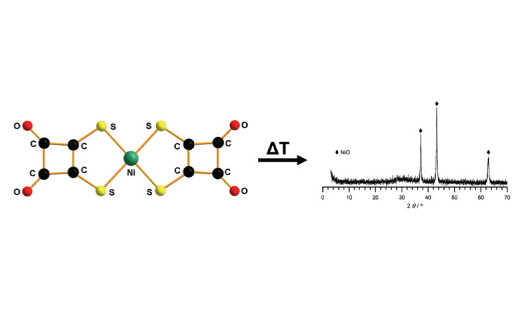Bis(1,2-dithiosquarato)nickelates(II) – Synthesis, Structure, EPR and Thermal Behavior
DOI:
https://doi.org/10.17344/acsi.2014.1065Keywords:
1, 2-dithiosquarate, 2-dithiosquaratonickelate, X-ray structure, TG/DTA, nickel oxide, EPR spectroscopyAbstract
1,2-Dithiosquaratonickelates are available by direct synthesis from metal salts with dipotassium-1,2-dithiosquarate and the appropriate counter cations. The synthesis and characterization, including mass spectrometry, of a series 1,2-dithiosquaratonickelates(II), [Ni(dtsq)2]2-, with several „onium“ cations is reported and the X-ray structures of two diamagnetic complexes, (HexPh3N)2[Ni(dtsq)2] and (BuPh3N2[Ni(dtsq)2] with sterically demanding counter ions are presented. The diamagnetic nickel complexes have been doped as host lattices with traces of Cu(II) to measure EPR for additional structural information. The thermal behavior of this series is studied by thermogravimetry and differential thermo analysis (TG/DTA). The thermolysis in air as well as under nitrogen atmosphere of these complexes results in nickel oxide nano-particles in all cases, which are characterized by X-ray powder diffraction.

Downloads
Additional Files
Published
Issue
Section
License
Except where otherwise noted, articles in this journal are published under the Creative Commons Attribution 4.0 International License
